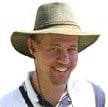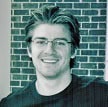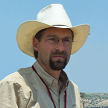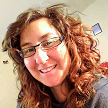-
Asked by Barbie to Alex, Ana, Clay, Keegan, Mark on 29 Apr 2016.0
-
Mark Ritchie answered on 29 Apr 2016:
My most difficult times professionally were when I had to go a long time (years) without funding for my research projects. I had to do a lot of reading and trying out different ideas and had to learn to not get discouraged.
I am a firm believer that challenges make you better. In my case, when I began to explore science questions beyond what I was already working on, I have made some neat discoveries. Most recently, I started doing a lot of research with undergraduates and found that organisms’ response to higher temperatures does not work the way most biologists think it does.
-
-
Alexander Taylor answered on 29 Apr 2016:
Similarly to Mark, the hardest times for me have been when my applications for grant money have been rejected. This happens to almost all scientists, especially since every year there are more and more scientists and about the same amount, or slightly less, money.
Like Mark, I feel that these setbacks are an important time to think about what mistakes you might have made, whether your plan was broadly in the right direction, and what you should do differently in the future. Everyone fails, the questions is what you do with your failure.
-
Clay Robinson answered on 5 May 2016:
There are all sorts of questions inspired by observations scientists make. But I will answer this relative to college because that was when I encountered some of the greater challenges to my interest in being a scientist.
In my second semester of physics, we got to the part that covered electricity. Though I understand about circuits and even how to wire a house, I struggled to understand capacitors and transistors. I did not do well on that exam. And I am really good at many things in physics today and use it in many components of my work as a soil scientist, but I STILL struggle with those concepts in electricity. So I chose to work on my strengths and go a different direction.
In my organic chemistry laboratory, we were required to make certain compounds, and were graded on the yield – how much product we produced relative to the amount of reactants we used. My lab technique was really poor, and I could not get more than about 70% yield, while other students in the lab were getting more than 90%. This was one of the things that helped me understand I really did not want to be a soil chemist working in a lab all the time. I did not enjoy it, and would need a lot of work to refine and improve my techniques. I probably could have done it, but it was not my interest.
Related Questions
Recent Questions
-
What are the pros and cons of your profession?
-
How do you determine how old soil is? Knowing the different interactions it has with time, climate, and living
-
What is your favorite thing about being an environmental scientist?
-
Growing up and today included, do/did you have any pets?
-
how long was the longest worm u have ever found
Recent Comments
-
And the winner is… (1 comment)
-
The first scientist eliminated is… (2 comments)
-
If plastic-eating bacteria were released, how drastic do you think the effect would be? (1 comment)
-
Who is Your Role Model? (2 comments)
-
In order to become an environmental engineer did you get a bachelors degree in engineering? (1 comment)






Comments